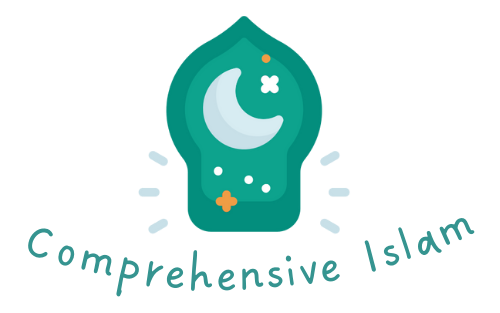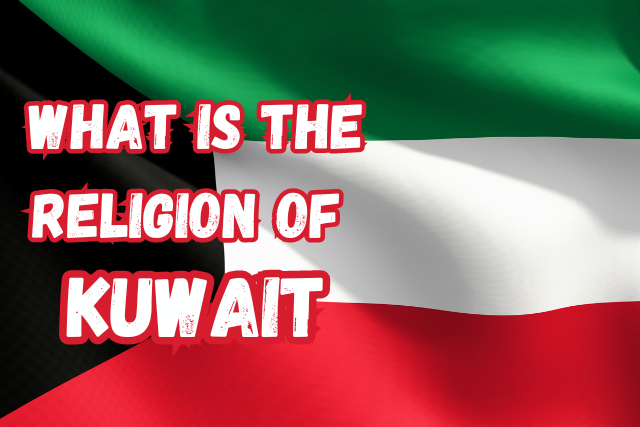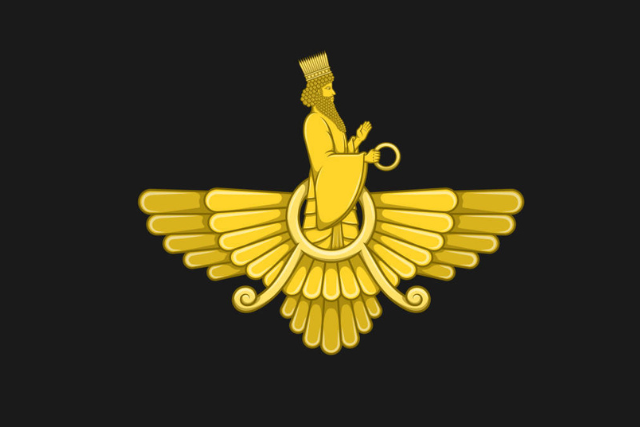What is the Religion of Korea | Divine Journeys
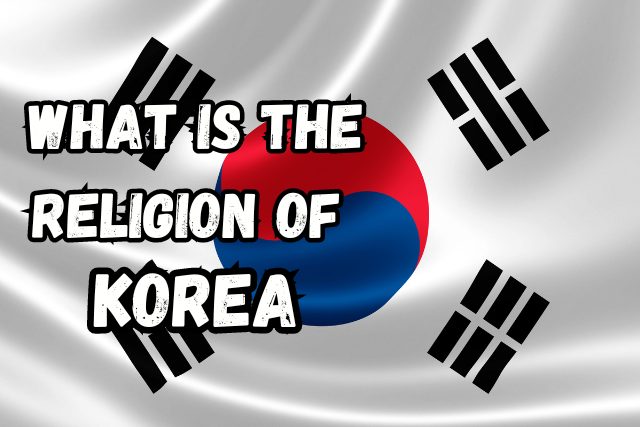
Welcome to the captivating world of Korea, where tradition and spirituality weave together like a colorful tapestry. I’ll embark on a journey to uncover What is the Religion of Korea?
Korea is a land where people follow different religions, and each one brings its own unique stories and practices. From Buddhism, where serene temples dot the landscapes, to Christianity, which has found a warm home in the hearts of many, Korea’s religious story is like a big family with diverse members.
So, get ready to unravel the mysteries of Korea’s spirituality! Let’s explore how the beliefs of this amazing country contribute to its rich cultural identity. Let’s dive into the colorful world of Korea’s religions together!
Buddhism
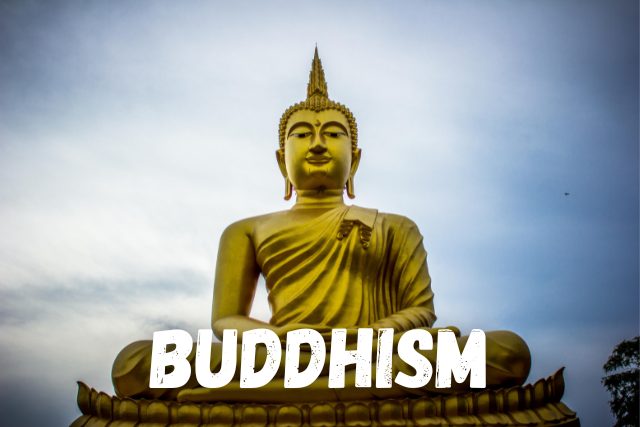
Buddhism is one of the major religions in Korea, with a significant number of followers. Buddhists in Korea practice the teachings of Siddhārtha Gautama, known as Buddha, emphasizing meditation, kindness, and the path to enlightenment. Temples, adorned with intricate designs and serene surroundings, serve as places of worship and reflection.
Core Beliefs
Buddhists in Korea follow the teachings of Buddha, an enlightened teacher. They learn about kindness, compassion, and the importance of finding inner peace.
Buddhists believe in reincarnation, which means after a person dies, their soul is reborn into a new life. The goal is to live a good life and break free from the cycle of rebirth.
Practices
Buddhists practice meditation to calm their minds and find inner peace. They sit quietly, focus on their breath, and clear their thoughts.
Temples are special places where Buddhists go to pray, meditate, and learn more about their faith. Temples in Korea are often surrounded by beautiful nature, creating a peaceful atmosphere.
Symbols
The lotus flower is a symbol of purity and enlightenment in Buddhism. It represents the idea that even in muddy waters, a beautiful flower can bloom.
Buddhists use the Wheel of Dharma as a symbol that represents Buddha’s teachings. It has eight spokes, each symbolizing a different aspect of a good and meaningful life.
Values
Buddhism encourages people to be kind and compassionate to others. Buddhists believe that by helping others, they create a happier and more peaceful world.
Mindfulness is an essential part of Buddhism. It means paying attention to the present moment and being aware of one’s thoughts and actions.
Confucianism
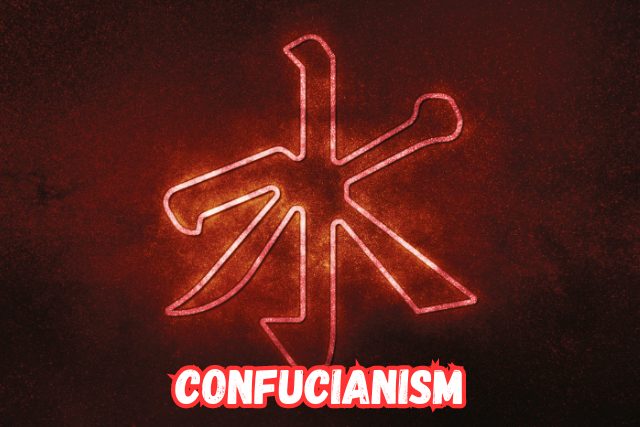
Confucianism, a philosophical and ethical system, has deeply influenced Korean culture and society. It emphasizes principles such as respect for elders, loyalty, and the importance of family.
While not a traditional religion with deities, Confucian teachings have played a crucial role in shaping Korean values and traditions.
Core Principles
Confucianism emphasizes the importance of respecting elders. In Korean families, showing respect to grandparents and older family members is a key value.
Confucian teachings focus on ethical conduct, which means doing what is right and fair. Koreans learn about honesty, kindness, and being responsible.
Family Values
Confucianism highlights the significance of family bonds. Korean families often gather for special rituals to honor ancestors, fostering a sense of unity and shared heritage.
Filial piety is a Confucian value that encourages children to be respectful and obedient to their parents. It promotes strong family ties and a sense of duty towards one’s family.
Social Harmony
Confucianism promotes harmony within communities. Koreans learn to work together, help one another, and contribute to the well-being of society.
Confucius believed in the power of education. In Korea, education is highly valued, and students are encouraged to strive for knowledge and personal improvement.
Symbols
Confucianism uses the concept of Yin and Yang, representing balance and harmony. It teaches that opposing forces can work together to create a harmonious world.
Confucianism defines five essential relationships, including those between parents and children, siblings, and friends. These relationships guide people on how to interact respectfully.
Values for Everyday Life
Confucianism teaches humility, reminding people to be modest and avoid boasting. Koreans learn the value of humility in their daily lives.
Confucianism encourages hard work and dedication. Koreans strive to contribute positively to their families and communities through their efforts.
Christianity

Christianity, including both Protestantism and Catholicism, has gained prominence in Korea. Many Koreans follow the teachings of Jesus Christ, attend churches for worship, and celebrate Christian holidays such as Christmas and Easter. Churches play a central role in the lives of Korean Christians, serving as places of prayer, community, and charitable activities.
Core Beliefs
Christians in Korea believe in one God. They follow the teachings of the Bible, which is a holy book containing stories, teachings, and messages from God.
Christians believe in Jesus Christ, who is considered the son of God. They follow his teachings about love, compassion, and helping others.
Practices
Christians in Korea go to special places called churches for worship. These are peaceful places where people gather for prayers, and songs, and to learn more about their faith.
Christians pray to communicate with God. They express their thanks, ask for guidance, and share their thoughts and feelings through prayer.
Values
Christianity teaches people to love one another and be kind. Christians believe in helping those in need and treating others with respect.
Being part of a Christian community is important. It’s like being part of a big family where everyone cares for each other.
Celebrations
Christmas is a special time for Christians in Korea. It celebrates the birth of Jesus Christ. Families come together, exchange gifts, and share festive meals during this joyful season.
Easter is another important celebration. It commemorates the resurrection of Jesus Christ. Christians attend church services and participate in various traditions during this time.
Religious Freedom in Korea
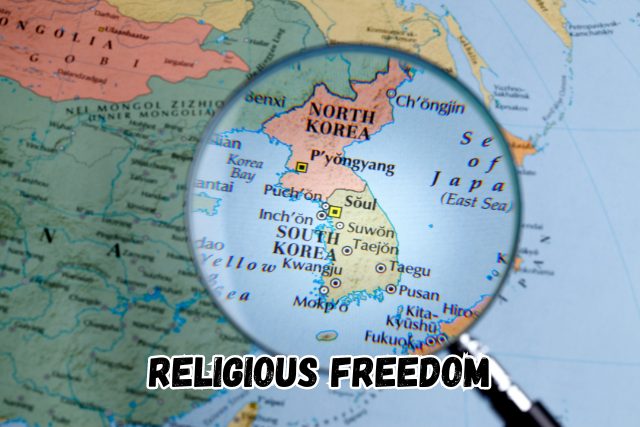
In Korea, everyone has the freedom to choose and practice their religion. This means people can follow the beliefs that are important to them without any problems. Whether someone is a Buddhist, Christian, follows another religion, or chooses not to follow any, they are free to do so.
Korea values and respects the diversity of religious beliefs. People from different faiths, such as Buddhism, Christianity, and others, live together peacefully. This religious freedom creates a welcoming environment where everyone feels respected, fostering a sense of unity among people from various backgrounds.
Final Thoughts
In conclusion, Korea is a country with a diverse religious landscape that includes Buddhism, Confucianism, and Christianity. Each belief system contributes to the cultural richness, shaping the lives and values of its people. The temples, ancestral rites, churches, and diverse festivals stand as symbols of Korea’s spiritual diversity.
Despite the differences in beliefs, Koreans live together harmoniously, respecting and celebrating each other’s faiths. This blend of religions creates a unique tapestry that defines the cultural identity of Korea, making it a special place where people from different backgrounds coexist in unity.
FAQ
What is the religion of Korea?
Korea’s main religions include Buddhism, Confucianism, and Christianity.
Can people practice different religions in Korea?
Yes, Korea values religious freedom, allowing people to practice various religions peacefully.
Are there Muslims in Korea?
Yes, there is a Muslim community in Korea.
Is there a mosque in South Korea?
Yes, there are mosques in South Korea where Muslims gather for prayers and community activities.
